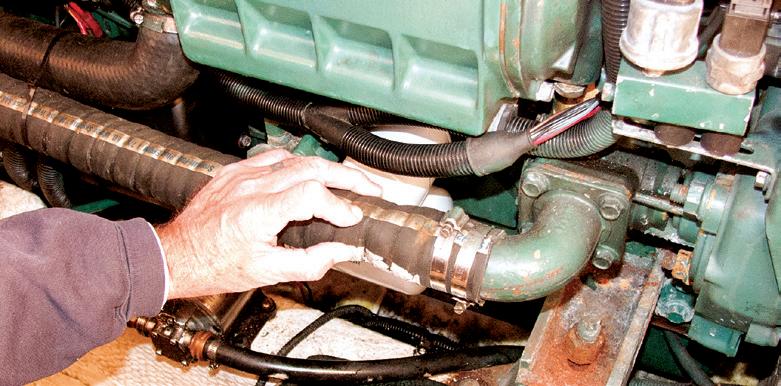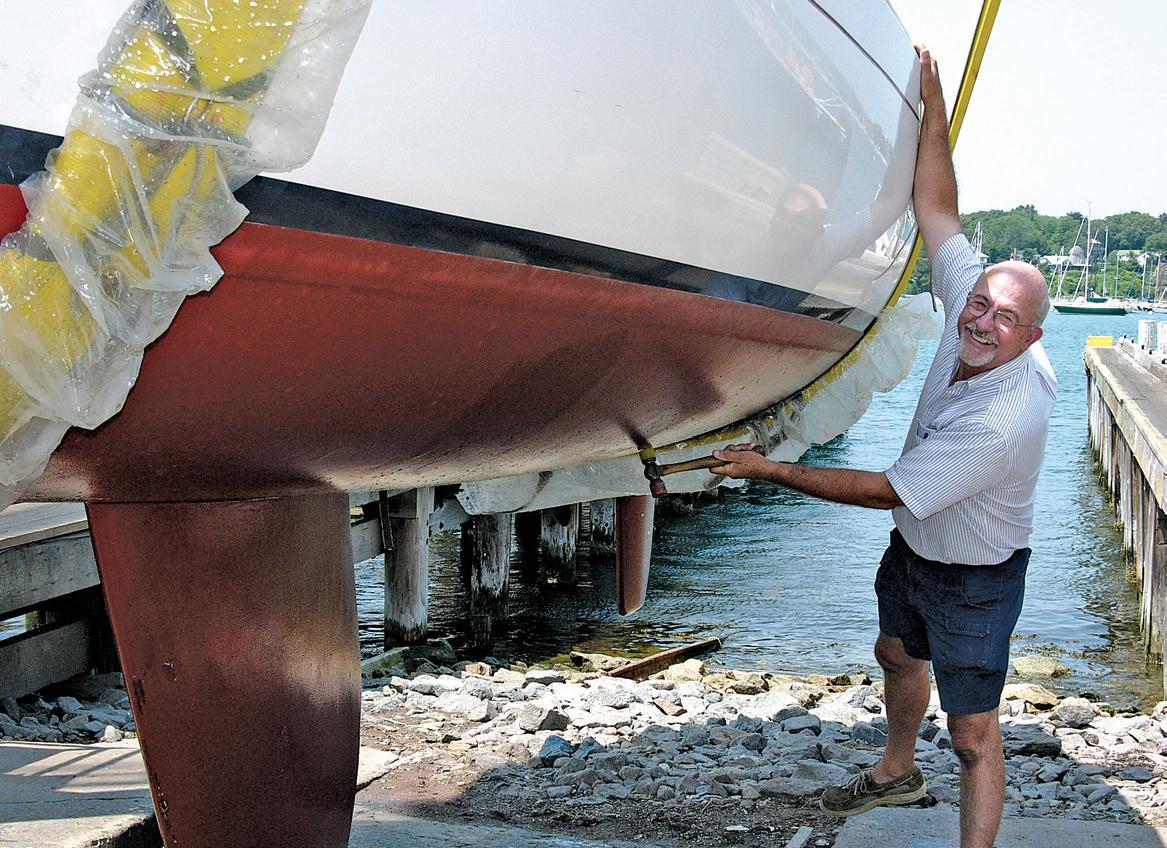
6 minute read
Buying a Used Boat Pt. III
What Your Surveyor Wants You to Know
The third of three articles from BoatU.S. on purchasing a used boat.
Advertisement
By Mark Corke and Charles Fort For BoatU.S.
Over the years, BoatU.S. Consumer Protection has written plenty on the importance of getting a marine survey on a boat you’re considering buying, and for good reason. For many people, a boat may be the second biggest purchase they make, after a house, and there’s a lot at stake financially. Many insurance companies and banks require a Condition and Valuation survey in order to provide coverage or financing. But if you’ve never had a boat surveyed you might be wondering what to expect when you do need one. BoatU.S. Magazine associate editor and accredited marine surveyor Mark Corke offers up this advice.
Do some research on what you want
Decide what sort of boat you want and need. Have a look at a few models, then narrow the list down to one or two before you engage a surveyor. A surveyor has looked at hundreds or thousands of boats during his career and can offer advice on many boats, but he does not know which boat will suit you. One of my clients, after having me check out several boats, eventually asked me if I thought he should buy a power or sailboat! You’ll need to have your choices much narrower than that. The last thing a surveyor wants to do is tell you what kind of boat is best for you.
It’s not just about the cost
Don’t choose a surveyor on price alone. Of course, you need to know up front what the cost of the survey will be, but it could be a case of “if you don’t pay now, you’ll pay later.” That bargainbasement-price survey could cost you in the long run should the surveyor miss some important fault on the boat. If problems are caught before inking the deal, you have the option of renegotiating the price or getting faults corrected before you take delivery of the boat. While there is no guarantee that you will get more from a more expensive surveyor, as in all things, you typically get what you pay for. Prices are generally around $20 to $22 per foot, but if you’re quoted $12 per foot you need to ask yourself why.
Surveyors often get concerned when a client asks for a cheap survey because “it’s only for insurance.” Most surveyors are professionals and want you to be happy with your boat and ensure your safety on the water. In return, you want him or her to spot any deficiencies with the boat. Surveyors need to be able to stand behind
The condition of hoses and rigging are just a couple of things that the surveyor will check. Photo by Mark Corke
their work (possibly even in the courtroom), and doing a “light” survey doesn’t help anyone. Most surveyors have a set fee based on the size and type of boat, the type of survey, travel costs, and so on.
By all means ask how much the surveyor charges, but don’t wait until the day of the survey and then try to start negotiating the fee. You have the right to back out of the purchase up until the appointed survey date, but if you change your mind about the boat and have already had the survey done, the surveyor still has to be paid. Most surveyors expect payment on the day the service is completed. Surveyors typically won’t send out the completed survey report until they get paid. It’s the surveyor’s version of “no cash, no splash.”
The surveyor works for you only
You will be paying the surveyor’s bill, so it’s important that you understand that he reports to you and only to you. The surveyor doesn’t share his findings with anyone else unless you specifically request it. If you have a broker acting as your buyers agent, then you may ask that the surveyor send a copy of the survey to the agent as it makes your broker’s job easier if he’s asking for things to be addressed. Keep in mind that a survey is only good for a specific time because it’s really a snapshot of what the boat was like on a specific day. Old surveys should not be relied upon.
Make sure the boat is prepared
If you are asking a surveyor to come to your boat to perform an insurance survey, make sure that the surveyor has access. Don’t expect him or her to empty out lockers of heavy anchors, bags of sails, and boxes of spare parts. The surveyor needs to look at the mechanical parts of the boat, and it causes delays to have to move tons of stuff out of the way. If in doubt, ask the surveyor what he needs before he arrives. He won’t expect everything to be off the
boat, but he will appreciate reasonable access. One client asked me to survey his 33-foot sailboat, but it turned out that the entire contents of a small apartment seemed to have been crammed aboard. If that wasn’t bad enough, the little boat also had a Great Dane aboard!
Don’t get in the surveyor’s way
Most surveyors like it when the buyer is at the survey. They can answer questions and point things of interest out on the boat that may not find their way into the survey report. That being said, it makes the job slower if you hover. Allow the surveyor to do his job – you’ll get a complete written report about everything he sees.
A sea trial is not a boat ride
The purpose of a sea trial is to check the boat’s systems, engines, generators, electronics, and other parts that cannot be inspected while the boat is not under commission or is “on the hard.” The surveyor will need to pay close attention to the engines, helm, and systems, and how the boat handles. To get the most from a sea trial, leave the kids, dog, and Aunt Kate at home. They can get a ride on the boat later, assuming that you buy it. Too many folks on the boat makes it difficult for the surveyor to do the job properly.
Surveyors are happy to talk things over with you before and after the survey
Most surveyors are only too happy to talk to you about the survey process, especially if this is your first time employing a surveyor. They will also answer questions after the survey, so don’t be scared to call them up if you see something in a survey report that you don’t understand. Surveyors are on boats every day, but owners and buyers may not always understand some of the technical terms.
Relationships are important
Surveyors want to build a solid relationship, because their reputation is at stake. There’s a saying experienced surveyors tell newbies: You’re only as good as your last survey. Marine surveyors are often independent businesses and want you to call them first when you buy your next boat and also to recommend them to friends and family. If you have a problem with a survey (or a surveyor) don’t hesitate to bring it up.
This article was reprinted with permission from BoatUS Magazine, flagship publication of the membership organization Boat Owners Association of the United States (BoatU.S.). For more expert articles and videos to make your boating, sailing, or fishing better, visit BoatUS.com.

Below: It’s not hard to make a surveyor smile. All it takes is a little prep work on your behalf. Photo by Mark Corke











